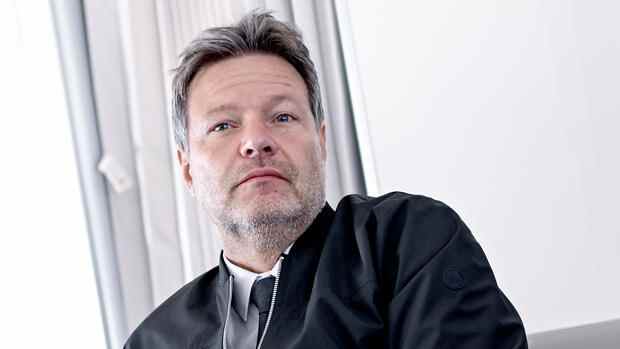With the tax debate, the state deters private investors.
(Photo: dpa)
Germany is in the middle of an economic crisis, and the Federal Economics Minister is thinking loudly about higher taxes. Robert Habeck may currently be the most popular politician in Germany. But that shouldn’t tempt the Vice-Chancellor to create populist sentiment against the so-called “higher earners”. This includes not only qualified specialists, but also hundreds of thousands of medium-sized businesses and craftsmen. For them, income tax is corporate tax.
If you want to relieve low and middle incomes by flattening the so-called “middle class belly” in a revenue-neutral way, as the Green politician probably imagines, then according to calculations by the Federal Ministry of Finance, the top tax rate would have to increase from 42 to 57.4 percent. Even Helmut Kohl would rub his eyes in amazement. In his era, the top tax rate was 53 percent.
>> Traffic light dispute over relief: Lindner tears apart Habeck’s tax plan
That sends the wrong signal at a time when taxpayers are already having to cope with high inflation rates. While on the one hand the sanctions regime against Hartz IV recipients falls, the Federal Minister of Economics wants to put a heavier burden on the willing middle. It all doesn’t fit together anymore. One cannot blame many self-employed and skilled workers if they despair of their politicians at certain moments.
Top jobs of the day
Find the best jobs now and
be notified by email.
Debates about higher taxes in the midst of such a fragile economic situation send the wrong signal altogether: we need more investment, not less. The state wants to motivate the private sector to invest huge sums in the digitization and electrification of the national economy. With the tax debate, however, he deters private investors.
Tax relief needed
In any case, Germany is already runner-up in the world after Belgium when it comes to duties and taxes, as the OECD recently officially stated.
The Federal Minister of Economics should better use his energy to consider, together with Federal Finance Minister Christian Lindner, how tax relief can be used to ensure a sustainable economic upswing.
In autumn, the Federal Minister of Finance will present the report on cold progression. So it’s about the creeping tax burdens of inflation and wage increases that benefit the state. Lindner wants to return this additional income to the middle class. Habeck should not bring counter-financing through higher taxes into play again.
More: Debate about special tax: Should the state skim off the billions in profits from the oil companies?
